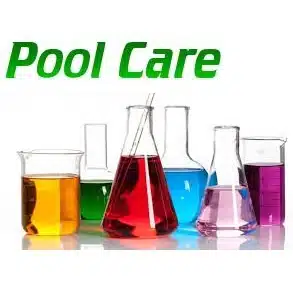Pool Chemistry Definitions: Total Hardness
Definitions
Pool water chemistry is the most misunderstood, yet vital component to overall pool care. Not only does proper water chemistry protect the swimmers using the pool, but it also protects the swimming pool itself.
Gas heaters, electrical heat-pumps, filters, and even the vinyl-liner can all suffer severe damage from unbalanced pool water. In order to clear up some of the confusion surrounding this subject, we have listed some of the more important water chemistry terms below.
Total Hardness
Total Hardness refers to the amount of calcium and magnesium in your pool water. When total hardness is too high, scale can form causing the water to appear cloudy. When total hardness is too low, the water will corrode metal fixtures including copper components found in gas heaters and electrical heat-pumps. The total hardness should measure 150 – 300 ppm.
Pool Chemistry Definitions: Total Hardness
The Best Pool Ever Made
Paradise Above Ground Pools are the most durable above ground pools available on the market today. With an extra thick, puncture resistant liner, and a heavy duty powder coated galvanized steel frame, these pools can stand up to any conditions and uses. Great for families with dogs, and for commercial use as well. Paradise above ground pools set up in about 2 hours (not including fill time) and are only available
Pool Chemistry Definitions: Total Hardness
Disclaimer:
All information given here is advisory and secondary in nature. It is given to familiarize you with products and procedures of Above Ground Pools Manufacturer’s manuals and instructions are the final authority and should be followed.
We offer no warranty and incur no liability from the us of this information. Please consult your manuals for the official instructions for your pool product or device
See Our Youtube Page For More Info

